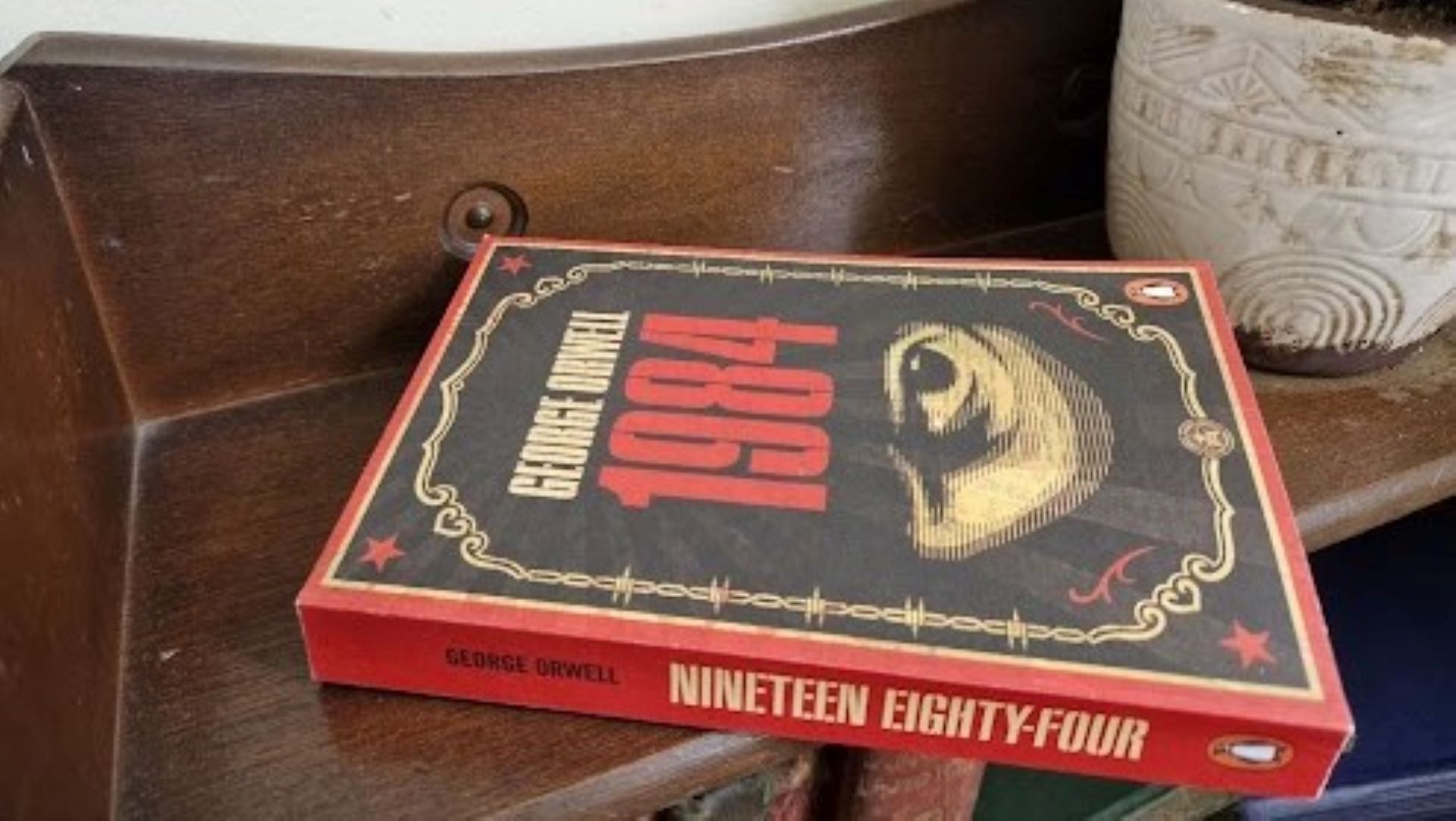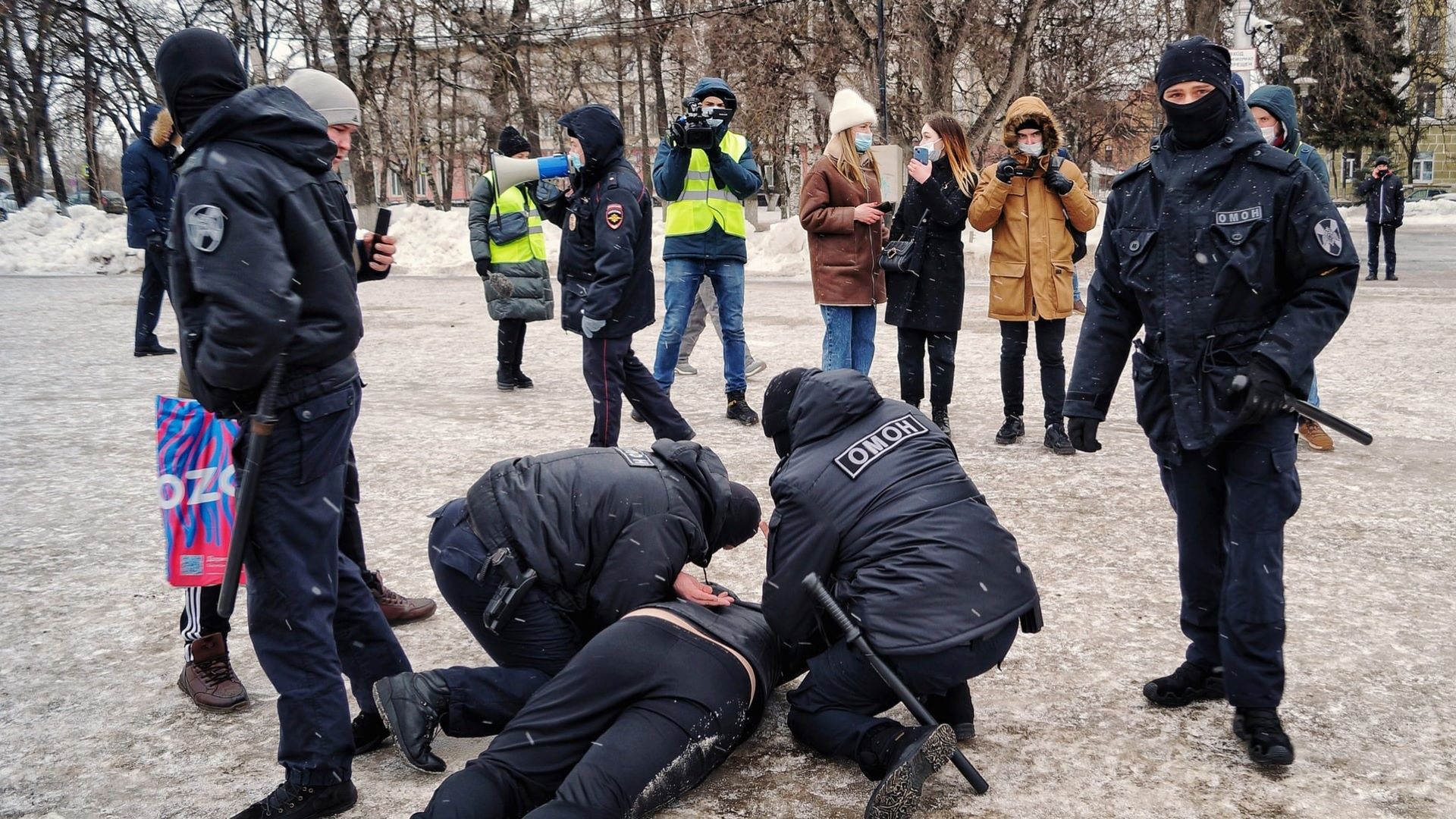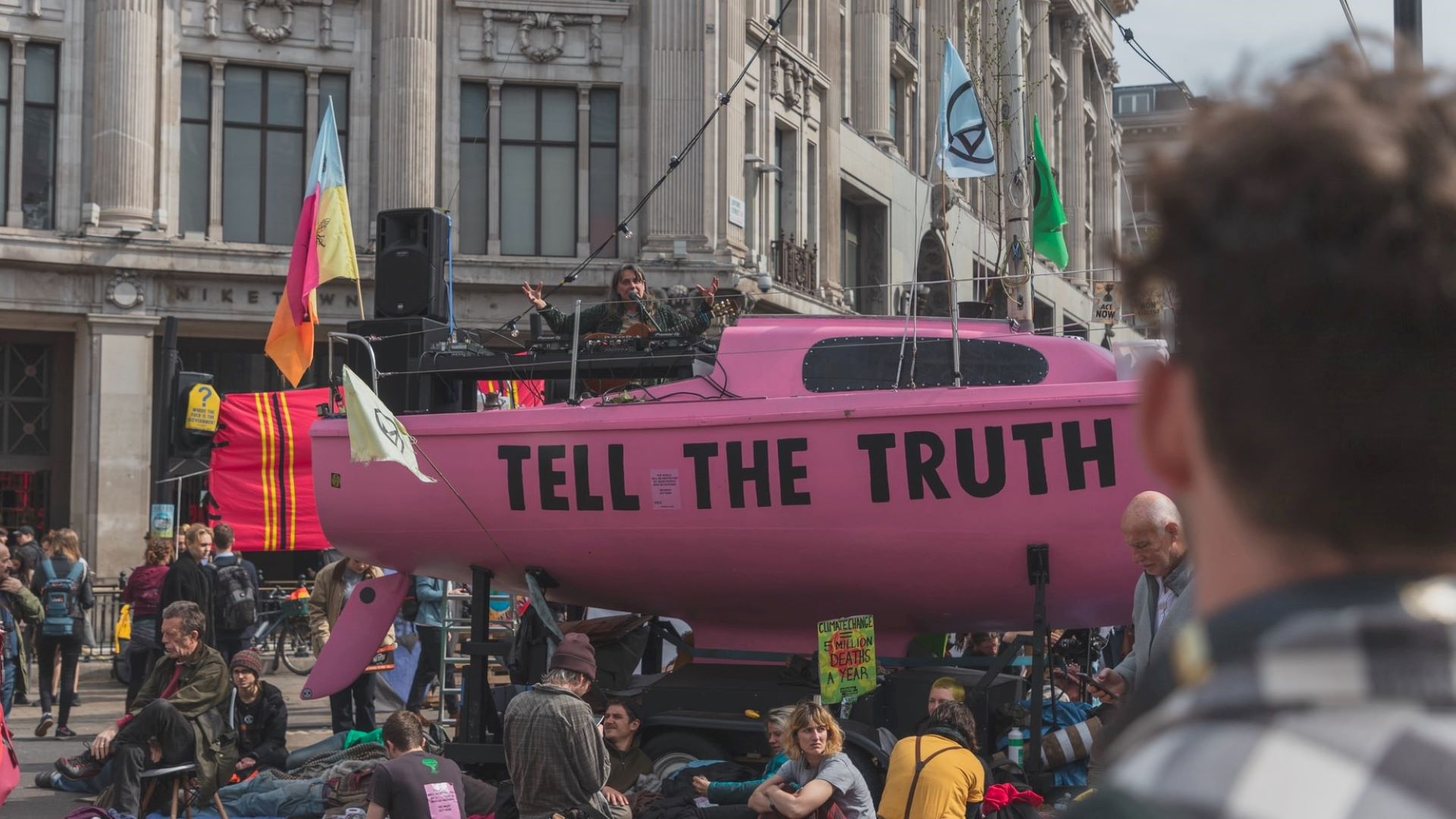There are a few books that almost every American high schooler has to read.
Lord of the Flies is one. The Catcher in the Rye seemingly becomes every freshman’s favorite. Then there’s To Kill a Mockingbird, The Great Gatsby, and Huck Finn.
But there’s only one book I was assigned in high school that I go back to again and again: George Orwell’s 1984.
I wound up reading 1984 twice more, including once in a foreign language — I remain fascinated by Orwell’s appendix on “Newspeak.” Did it secretly signal a different, more uplifting ending? Maybe!
But what initially drew me to it, back in 2005, was how realistic it seemed. Lord of the Flies felt like — and was — absurdist fiction that contradicted every playground and lunchroom experience I’d ever had.
The Catcher in the Rye was fantasy; I wanted to spend a weekend on my own in New York City, and I knew I was SUPPOSED to feel the same weltschmerz as Holden did … except I didn’t.
Part of it was probably 1984’s association with Apple’s famous Super Bowl commercial — which put visuals and faces to the text. But more than anything, I think it’s because, even as a high-school freshman in 2005, I could see the connection to real life in 1984’s portrayal of propaganda.
No spoilers here, but the gist is: Big Brother — the government — tells the population what’s true. We readers understand it’s blatantly false, but by repeating clear, simple slogans, what’s “true” is effectively changed.
I don’t think Orwell knew the term “gaslighting” when the book came out in 1949, but that’s exactly what happens to the population, via Big Brother’s slogans:
WAR IS PEACE
FREEDOM IS SLAVERY
IGNORANCE IS STRENGTH
In the real world during my freshman year, the Bush Administration’s insistence that Saddam Hussein was connected to Al-Qaeda and had weapons of mass destruction was patently ridiculous, but by repeating it often enough and drumming up shreds of evidence and generally creating an environment of fear, that narrative took hold.
It led to a costly and deadly war.
Luckily, the brutality — and totalitarianism — that Orwell paints for us in 1984 remains a far-off nightmare for much of the world. But not all of the world.
Vladimir Putin, for example, has taken a page out of Big Brother’s playbook to engender support for his invasion of Ukraine. Former chess champion Garry Kasparov recently described the “information bubble” Putin has built: “The Internet is still functioning but Facebook is banned,” he said, “Twitter, YouTube is slowing down …there are very few channels left for information to travel back to Russia.”
In neighboring Belarus, which has lately served as a launch pad for the Russian army, authorities cut off the Internet entirely and unmarked vans are dragging people away for indefinite periods of time.
Last year, the Belarusian government even brought down a commercial flight to seize a journalist. Belarusian President Alexander Lukashenko has become the mustachioed, authoritarian embodiment of Orwell’s Big Brother — and has earned his country the grisly moniker “The North Korea of Europe.”
Even in places we consider “free,” campaign posters take on a decidedly propagandist feel. And just as Big Brother used simple but facile three-word slogans, governments in the western world are pushing their messages in the same way — “In it together!” “Support the Troops!” “Follow the Science!” They are, in the process, subtly chipping away at truth and the process for discovering truth in a way reminiscent of Orwell’s Ministry of Truth.
Speaking of which … yikes!
For more context on propaganda, especially in times of war, see our Learn Liberty video below:
This piece solely expresses the opinion of the author and not necessarily the organization as a whole. Students For Liberty is committed to facilitating a broad dialogue for liberty, representing a variety of opinions. If you’re a student interested in presenting your perspective on this blog, send your piece to [email protected], and mention SFL Blog in the email subject line for your chance to be published and be seen!









